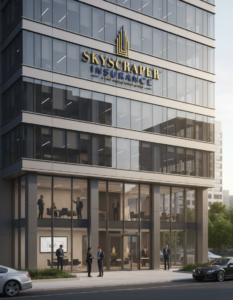Should the assumption of risk and liability be a concern for reopening businesses?
You are given the COVID-19 protocol ‘okay’ to open your doors for business, staff are directed to report for work, and customers begin a gradual reintroduction to your products, services and facilities. Thank goodness, we’re past the disruption and uncertainty of the coronavirus shutdown.
Then the unfortunate news comes: Some of your employees are diagnosed with symptoms of COVID-19, and it’s reported that they contracted the virus at their workplace. To complicate matters, some customers are hinting that they may also be affected. The employees report the matters to your workers’ compensation carrier for the handling of the medical billing and potentially lost wages. The customers send letters suggesting your firm is liable for their expenses and suffering. Worse yet, an employee is hospitalized with severe coronavirus symptoms.
You advise your commercial insurance carrier of the occurrences; you wonder about the potential insurance and legal ramifications of the employees’ and customers’ allegations of the cause of their illnesses, and you wonder if you’ll be sued.
The carrier considers the notice and sends you that always friendly document: a Reservation of Rights, indicating and reminding you of the liability provision in the insurance policy that advises:
“…We will pay damages which an insured party becomes legally obligated to pay for bodily injury or property damage arising from an occurrence to which this policy applies, and is covered … and if the insured party is sued for these damages, we will provide a defense at our expense…”
* * * * *
“We do not cover any … intentional or criminal acts or omissions of an insured party.”
Risk management process
The call from the carrier’s adjuster starts like this (after the proper empathy and support wording):
“Let me know the processes you have in place to ensure all of those entering your facility are aware of requirements in the COVID-19 environment, that employees are being monitored for COVID-19 symptoms, that your firm is taking reasonable actions to ensure the safety of the public, and your records of same we can include in the claim file. Are you following CDC, OSHA, or state department of labor advice, or all three? Can you send me the monitoring records by email?”
What do you say? “Everyone knows to be safe and distant, and employees certainly wouldn’t come in if they were sick. I wouldn’t want to pay them if they weren’t able to be productive. That’s why I have you, carrier, to investigate these things.”
Then the carrier does investigate the claims and finds no prior steps were taken by the firm to ensure reasonable practices were in place in the new COVID-19 business environment. The carrier also finds that the firm’s management simply did not take reasonable actions to ensure public safety or monitoring. The carrier denies coverage for the liability claims based on the insured failing to employ reasonable safety measures dictated by an accepted authority to inhibit COVID-19 transmission. In the absence of any prior action by the insured to ensure the safety, the carrier is suggesting gross negligence by the firm precludes coverage for the claimed injuries.
In essence, the insured assumed a risk the policy would not cover; that is, it did not fulfill its duty to inform and protect.
What is ‘reasonable’?
Did the insured understand and act to serve the duty owed to employees and the public? What is the reasonable knowledge the firm should have regarding the COVID-19 operating environment, and when should that knowledge have been gained and applied? Did the firm open prematurely based on government directives? Did employees feel compelled to report for work based on direct or indirect financial ramifications the employer set for staff? Do standards of gross negligence appear breached by the insured’s actions or omissions?
With 25 million small and midsize enterprises in the U.S., it’s easy to imagine the wide variety of circumstances that will be occurring as businesses begin to re-engage, and the probability of lawsuits being filed against employers and businesses triggered by persons contracting COVID-19 and alleging personal injury or financial damage as a result.
Will the assumption of risk be a concern for an insured party or a claim action taken by a carrier? That is to be considered as time goes along.
Here are some steps the parties can take to help strengthen the application of policy provisions and conditions and minimize the unknown:
Insured businesses
- Follow government dictates regarding approval to reopen the business.
- Know and share with staff current safe operating guidelines established by the Centers for Disease Control and Prevention, Occupational Safety and Health Administration, your state department of labor or local authorities. These standards are commonly available.
- Establish uniform screening standards for employees arriving for work or during work hours as warranted. Temperature, symptom screening and asking the employee of any health symptoms is a minimum.
- Maintain uniform, easily accessible records of screening and any employee health incidents, the more detailed, the better. Having the records in digital format is ideal.
- Communicate standards as they change either from government or organization sources. Ensure uniform communication and keep records of those communications.
- Communicate any suspected cases to the local health department, log any guidance received, and confirm communication to the subject.
- Keep public notices of required customer and vendor behaviors up to date. Gently communicate to customers and vendors who may not be in compliance and record exception cases.
- Consider having a third-party expert assist with crafting a screening, communication and recordkeeping program.
Carriers
- Maintain periodic written communication with your insureds: helpful tips, technical advice and sincere empathy.
- Provide specific advice regarding following the directions civil authorities provide and keep a chronology of when advice changes.
- Remind insureds about compliance with shutdown parameters, the need for uniform screening, and the need for detailed recordkeeping.
- Do not pre-judge claim scenarios (hypotheticals), but do provide reminders of coverage.
- Recommend insureds engage third-party help in establishing a screening and communication and recordkeeping program.
These are not exhaustive lists but are a good place to start. Up-front efforts will be much easier to handle than a denial of coverage will be. Stay safe and well, and install common-sense measures.









